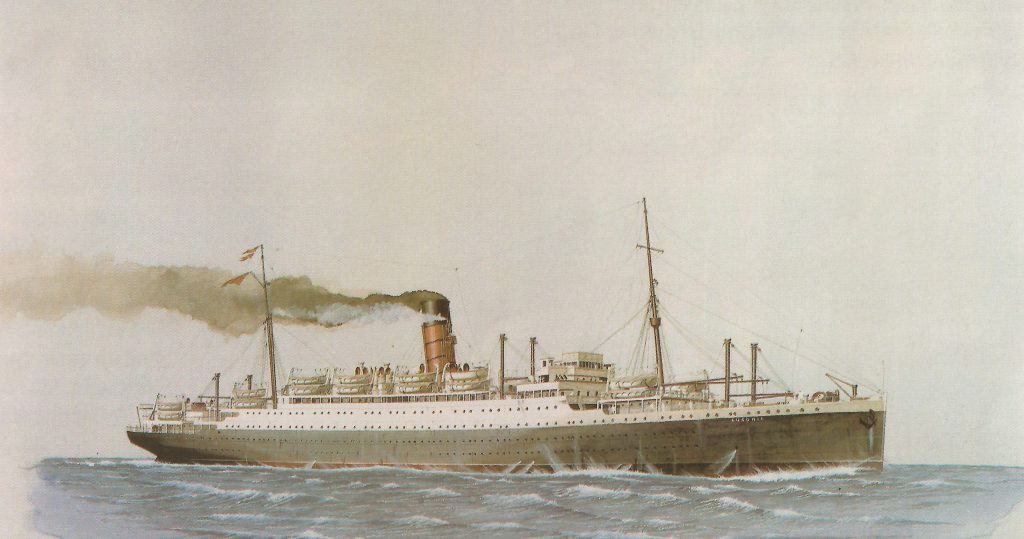RMS Ausonia II (1922-65)
The RMS Ausonia was the second Cunard vessel to bear the name.
The name Ausonia, originates from the ancient name for Italy, which was named after Auson, son of Ulysses and father of the Ausones.
Cunard launched three intermediate liners in the early 1920’s; the ‘A’ Class of 1922 were the Andania, Antonia and the Ausonia. These ships were originally intended for the England to Canada route. All three liners were essentially emigrant ships with a large refrigerated cargo capacity and had a straight stem, two masts, single funnel and counter stern, they were of 14,000 tonnes, oil fired and driven by double reduction geared steam turbines.
Type – Passenger Refrigerated Cargo Ship
Registration No. – 145970
Port of registry – Liverpool
Launch date – 22 March 1921
Completed – December 1921
Builder – Armstrong, Whitworth & Co. Ltd. Walker-on-Tyne.
Yard – High Walker
Yard No. – 970
Gross Tonnage – 13,912 tons
Dimensions – 520 feet long x 65.3 foot beam x 39.1 feet deep (158.48 x 19.90 x 11.88 metres) Bridge Deck & Forecastle 425 feet; Promenade Deck 243 feet
Number of funnels – 1
Number of masts – 2
Construction – 2 Steel decks & Shelter Deck sheathed in wood; 3rd deck in holds except No. 4 & 5; 10 partly cemented bulkheads; fitted with electric light, refrigerating machinery, cellular double bottom 442 feet, 1,810 tons; Deep Tank forward 1,456 tons; tanks in way of tunnels 45 feet, 382 tons; Forward Peak Tank 106 tons; Aft Peak Tank 57 tons, 7 hatches, 20 derricks
Propulsion – Twin screw; 8,500 SHP; 15 knots.
Engines – 4 Steam turbines double reduction to 2 screw shafts operating at 1640 nominal horsepower; 2 double ended & 2 single ended boilers; 24 corrugated furnaces; heating surface 19,440 sq. ft
Manufactured by – Armstrong, Whitworth & Co. Ltd.
Service speed – 15 knots
Passenger accommodation – 510 cabin class 1178 third class
Crew – 270
Owner – 1921 Cunard Steamship Co Ltd, Southampton
Owner – 1934 Cunard White Star Ltd, Southampton
Owner – 1942 Purchased by the Admiralty
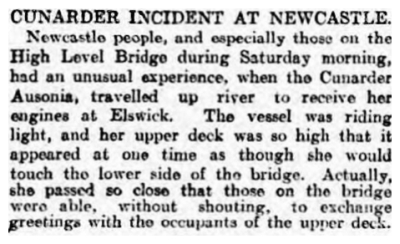
A newspaper article which appeared in the Yorkshire Post & Leeds Intelligencer on Tuesday 27th December 1921, recording Ausonia travelling up the river Tyne to Elswick for her engine fit.
(Copyright Yorkshire Post & Leeds Intelligencer).
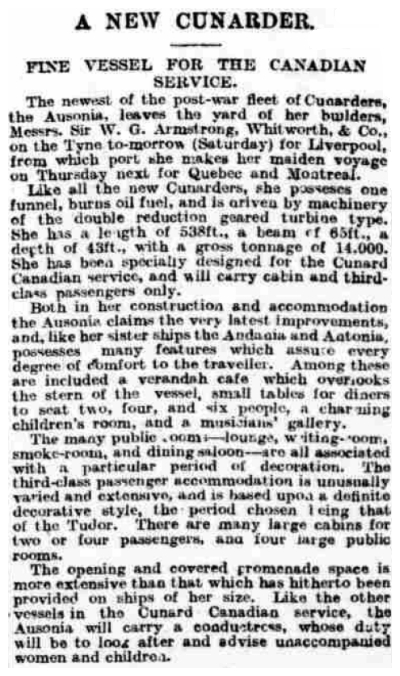
A newspaper article which appeared in the Taunton Courier & Western Advertiser on Wednesday the 30th August 1922, recording the Ausonia sailing to Liverpool for her maiden voyage.
(Copyright Taunton Courier & Western Advertiser).
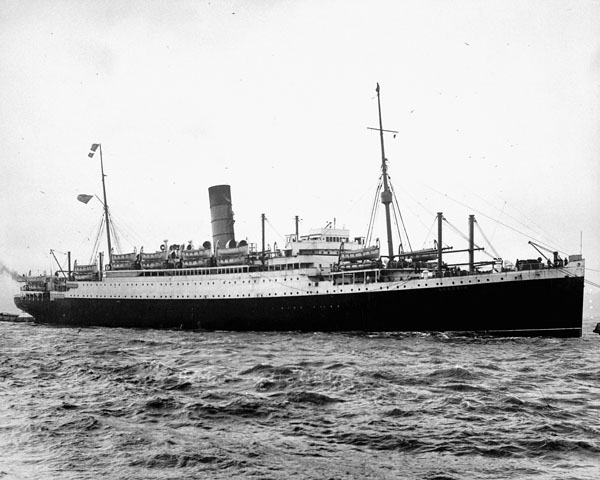
The RMS Ausonia in 1922.
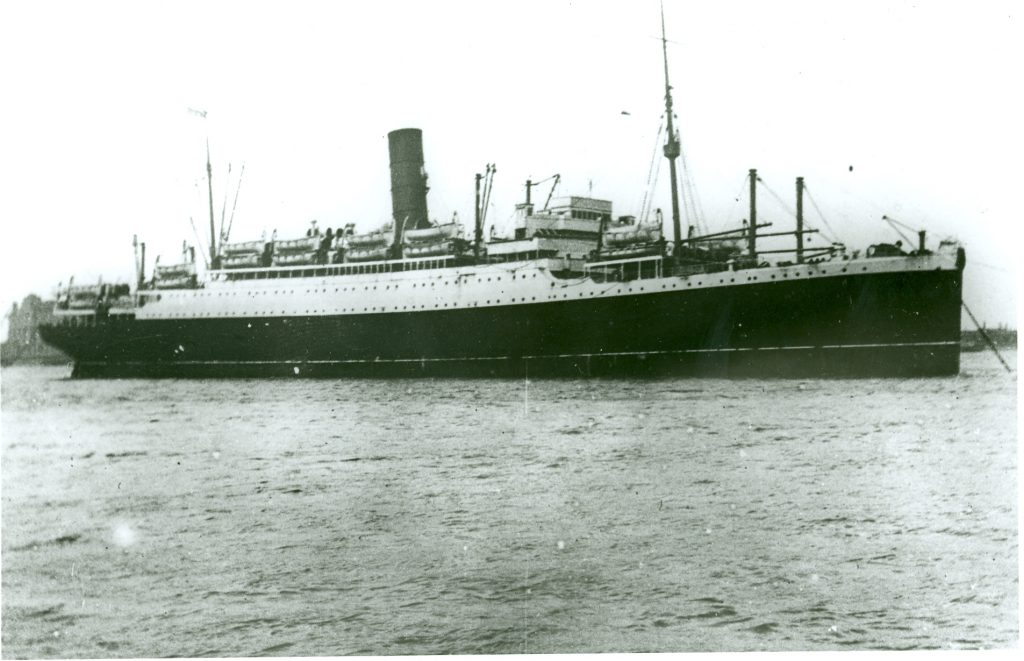
The RMS Ausonia in 1922.
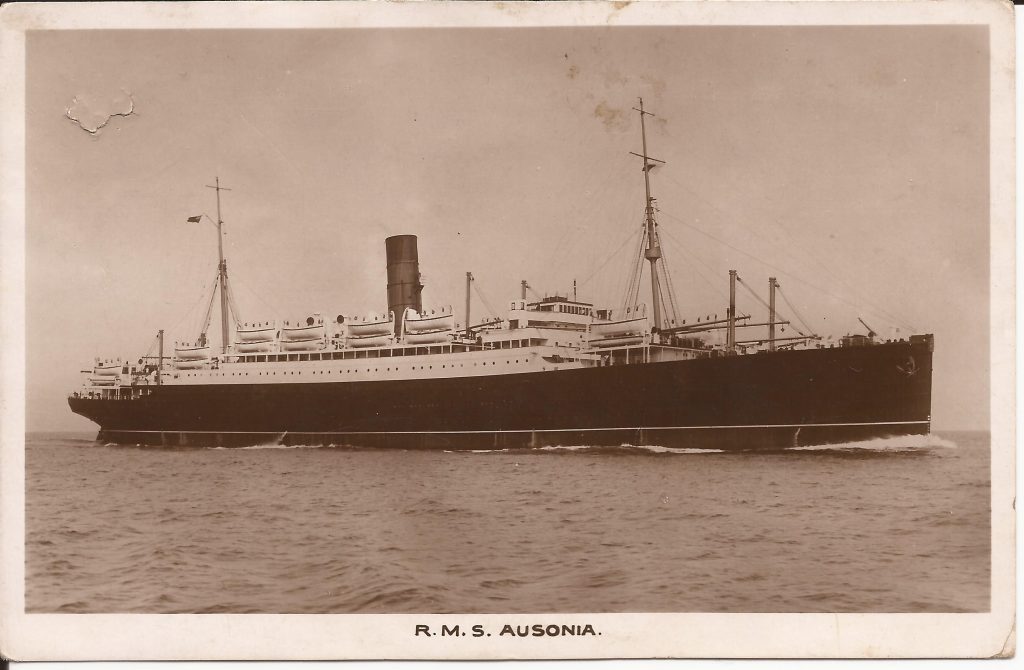
The RMS Ausonia in 1922.
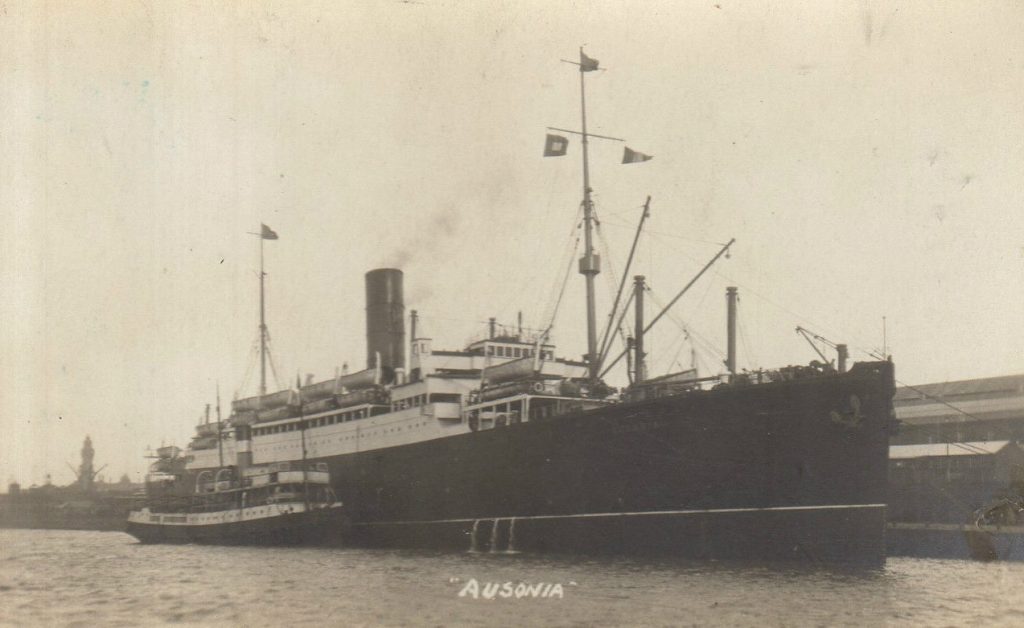
RMS Ausonia sometime in the early 1920’s.
RMS Ausonia was the second of Canard’s ‘A’ Class liners built following the First World War and intended for the Canadian service. Built at High Walker on the Tyne by Armstrong, Whitworth & Co Ltd, this was the only shipyard to build more than one of the ‘A’ Class liners, when the Ascania was also built by them the following year.
The Ausonia was launched on the 22nd March 1921 and completed in June. She made her maiden voyage on 31st August 1922, from Liverpool to Quebec and on to Montreal. On the 21st April 1923 she made her first voyage from Southampton.
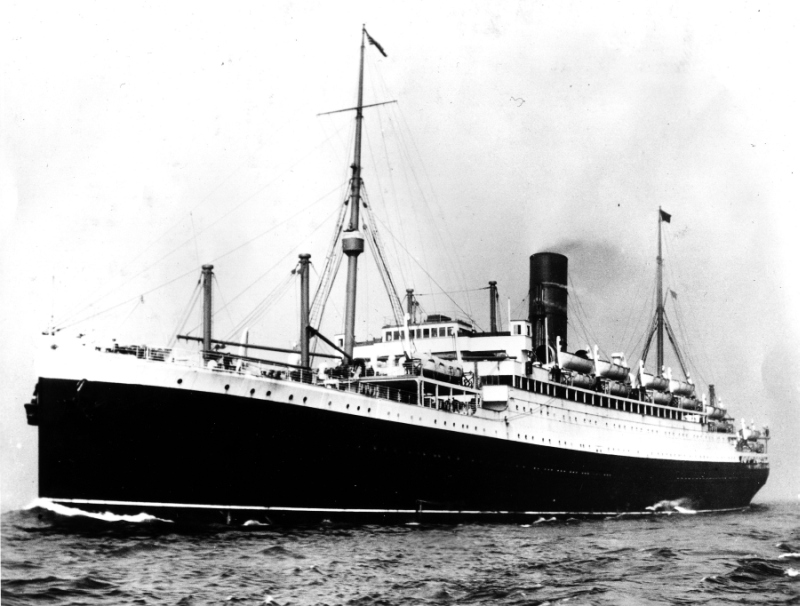
The RMS Ausonia in 1922. (Copyright Kevin Blair).
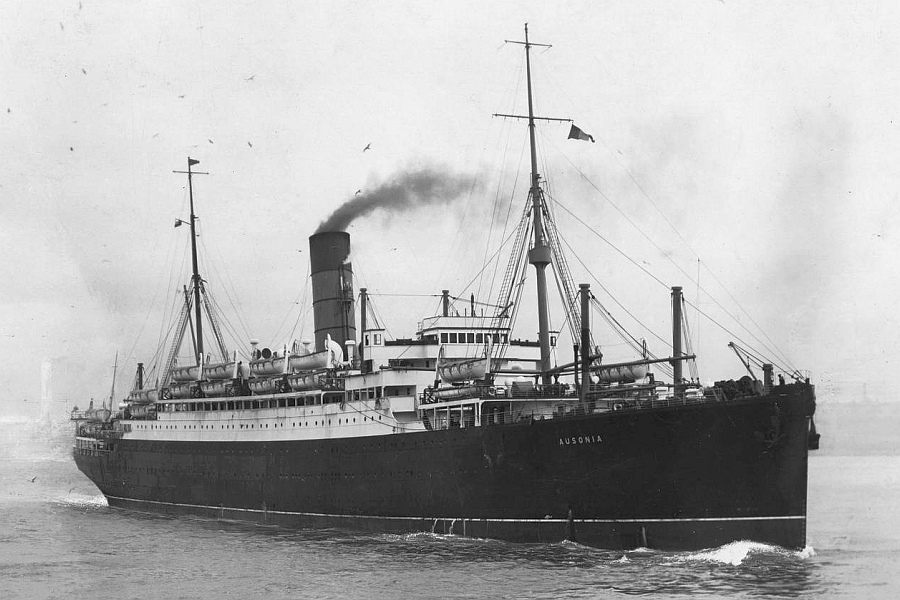
The RMS Ausonia in 1922. (Copyright Kevin Blair).
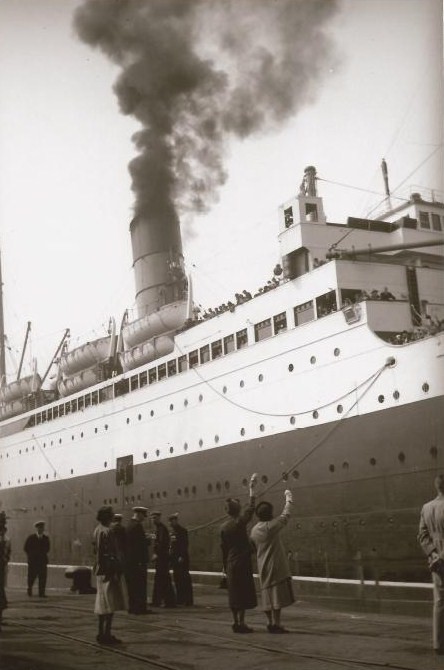
The RMS Ausonia at Southampton in the 1920’s.
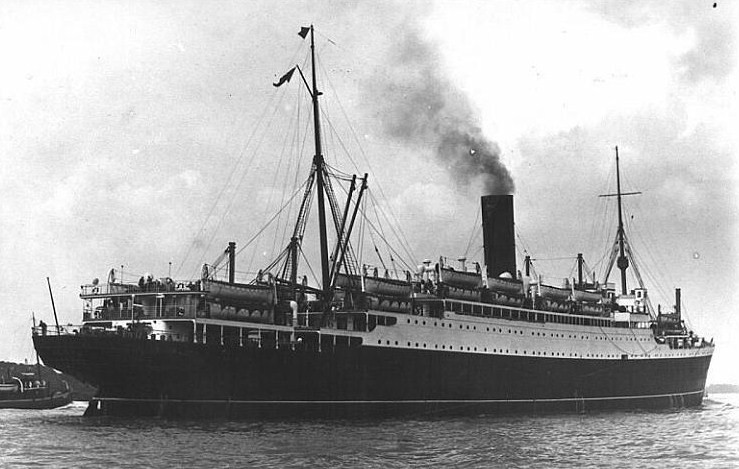
The RMS Ausonia in the late 1920’s.
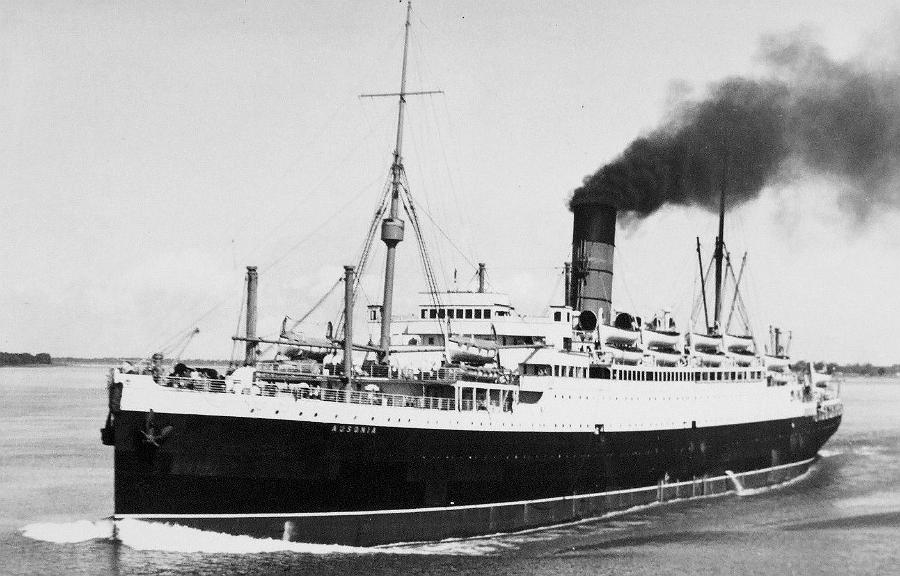
The RMS Ausonia in the late 1920’s in the St Lawrence River.
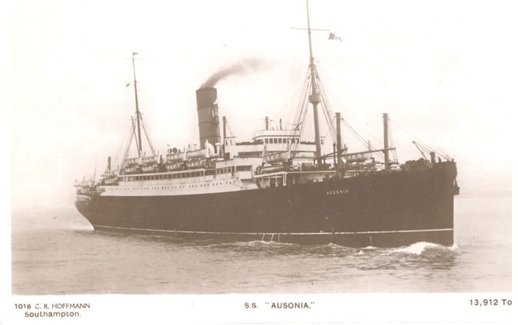
The RMS Ausonia in the late 1920’s.
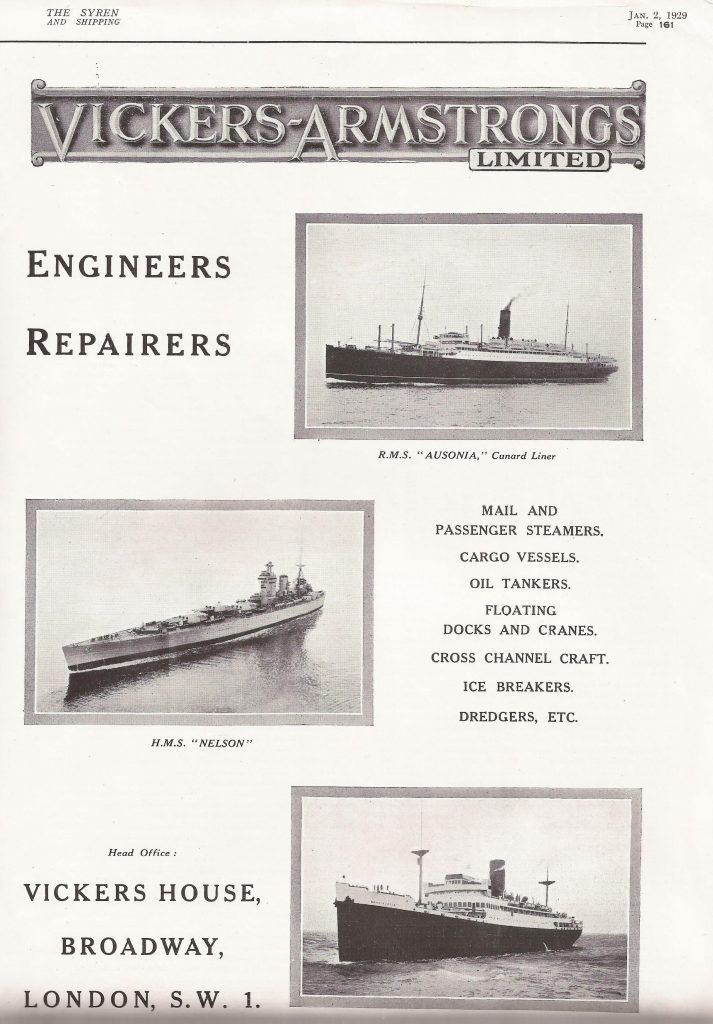
An advertisement for Vickers Armstrong, which appeared in “The Syren and Shipping” newspaper published on the 2nd January 1929 featuring the Ausonia.
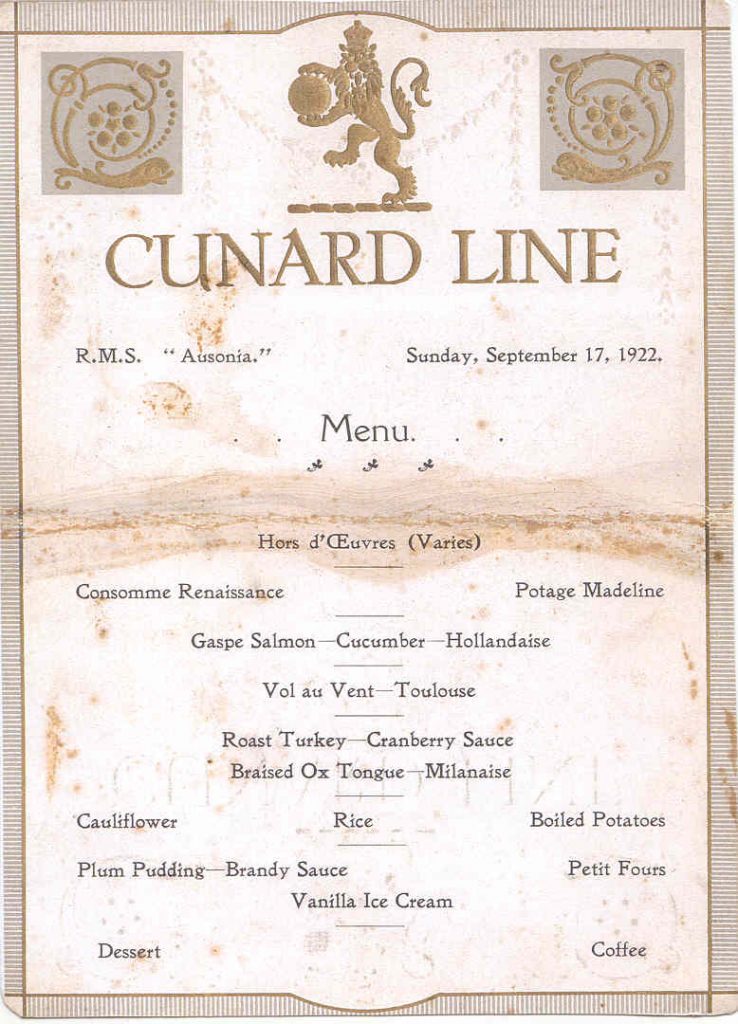
A menu from RMS Ausonia dated the 17th September 1922.
Throughout the 1920’s and 30’s the Ausonia, like the other ‘A’ Class liners, mainly sailed on the London to Montreal route and then in the winter months, when the St Lawrence River was frozen, terminated her voyage at Halifax. She also frequently called at Hamburg to embark third class emigrant passengers and load cargo.
As with all the other ‘A’ Class liners, the Ausonia had accommodation for between 400 and 500 cabin class and approximately 1,000 third class passengers and while she did not pretend to rival the luxury of the big express liners, the Cabin Class public rooms on A deck were spacious and comfortable. Forward of the main staircase was a winter garden lounge and aft of the staircase was a smoking room and a gymnasium. There was also a children’s nursery and a long gallery and drawing room. The Third Class passengers were well catered for with two berth cabins and several recreation rooms including a lounge and smoking room.
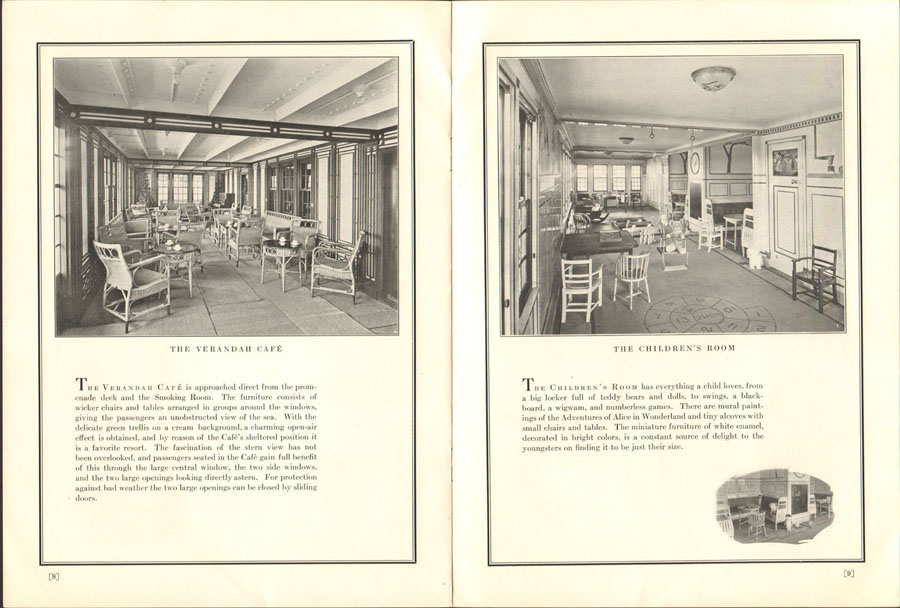
A Cunard advertisement as it appeared in a newspaper in the early 1920’s, for the ‘A’ Class of 1922, RMS Ausonia, RMS Andania and RMS Antonia.
Another view of the Veranda Café on board the Ausonia, this time on a souvenir postcard.
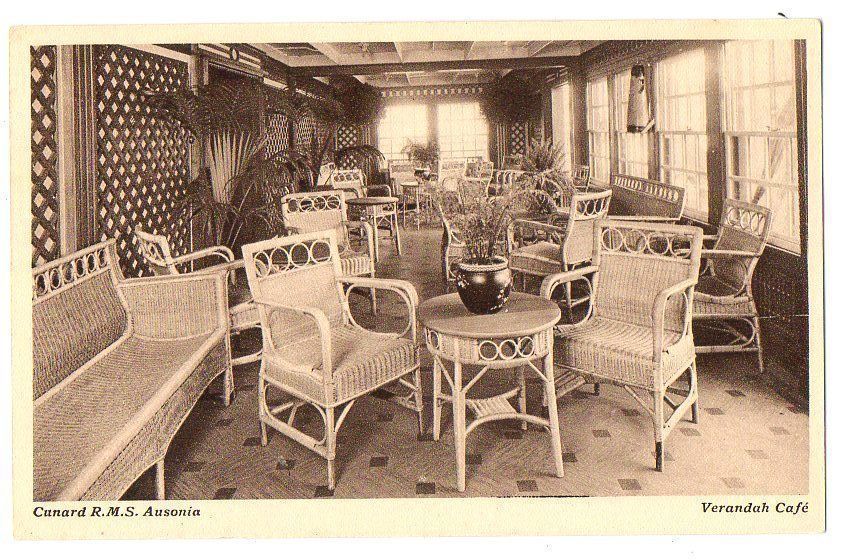
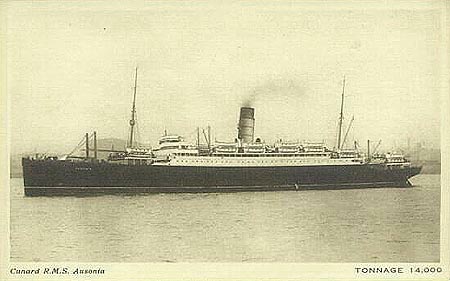
The RMS Ausonia in the late 1920’s.
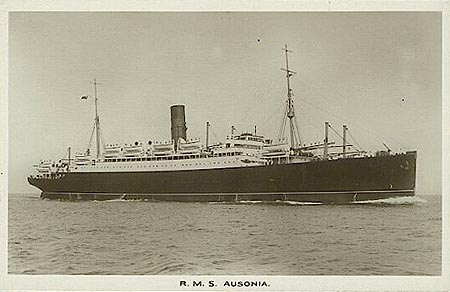
The RMS Ausonia in the late 1920’s.
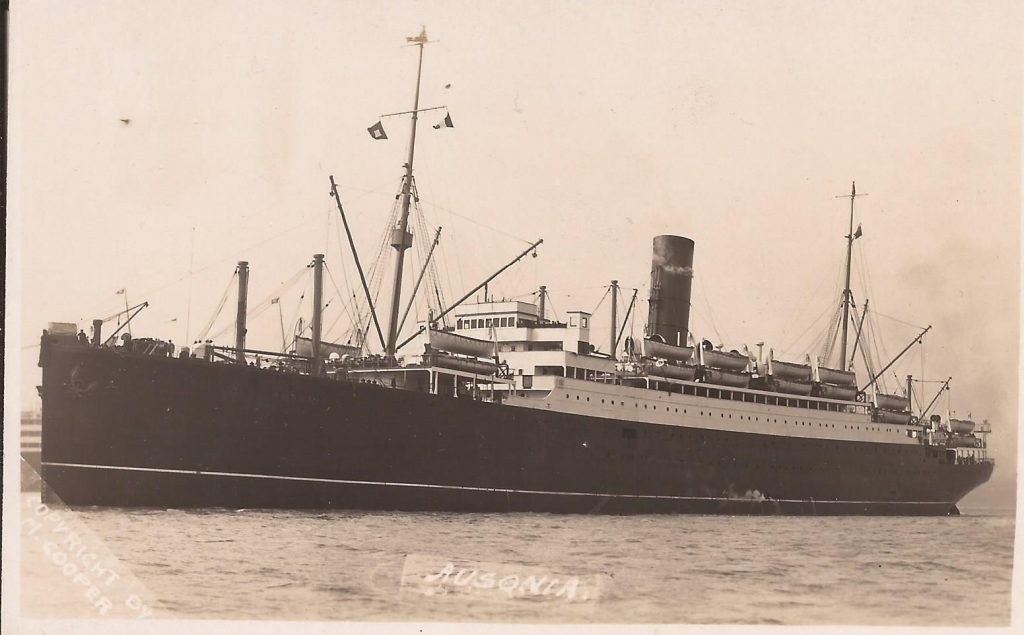
A postcard photograph of RMS Ausonia in the late 1920’s.
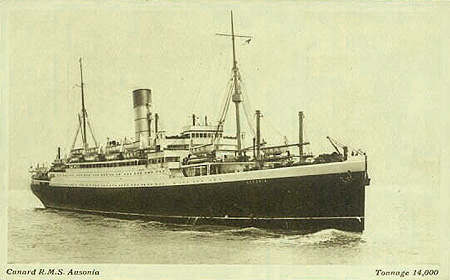
The RMS Ausonia in the late 1920’s.
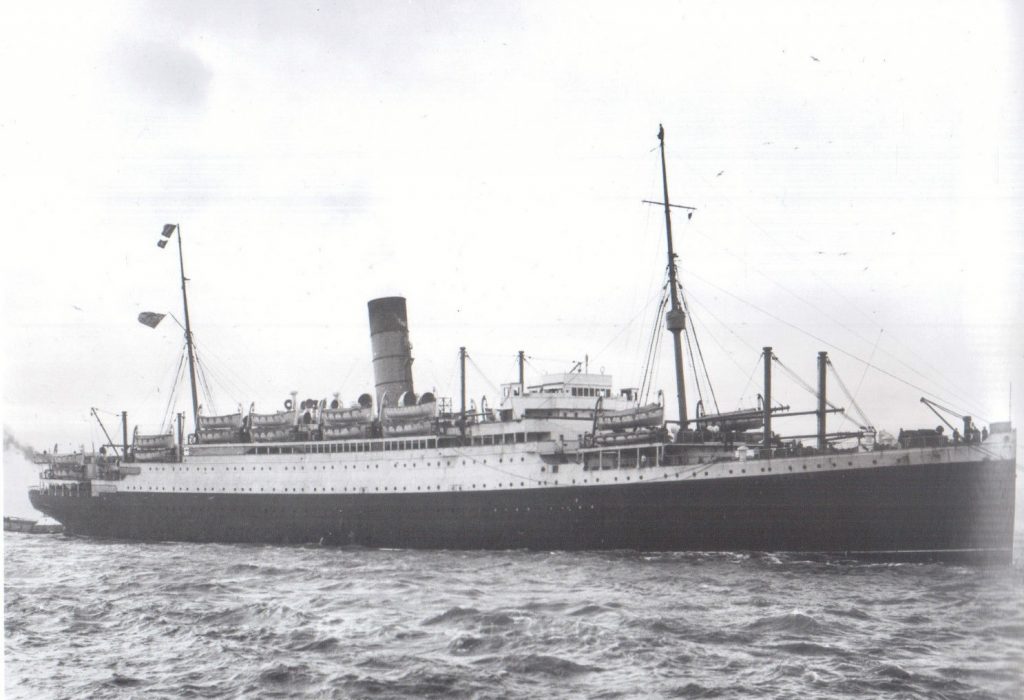
The RMS Ausonia in the late 1920’s.
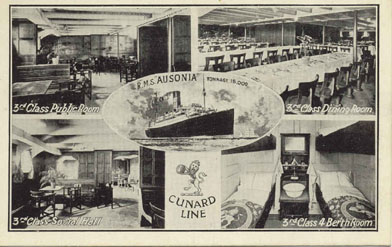
Cunard advertisement postcard for the RMS Ausonia showing her internal features 1920’s.
By June 1927 it was decided that the passenger accommodation should be more diverse and as a result the ship was refitted so that she could cater for three classes of passenger, Cabin, Tourist and Third Class, however, this work was reversed in 1939, when the accommodation reverted to cabin and third class only.
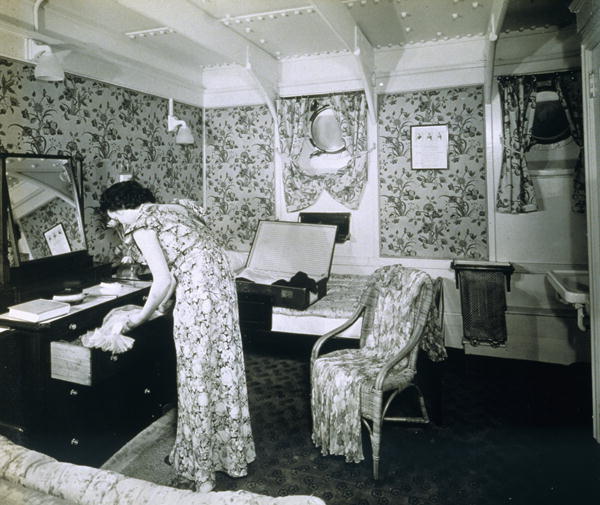
Cunard line press photograph for the RMS Ausonia showing one of her cabins.
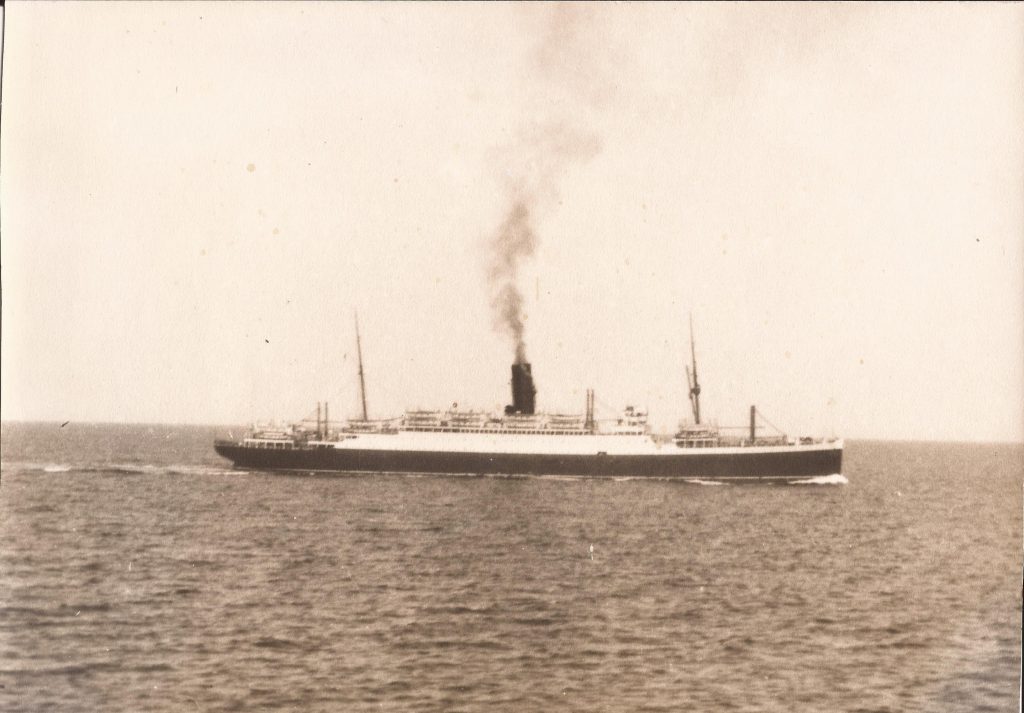
RMS Ausonia sometime in the late 1930’s arriving in New York.
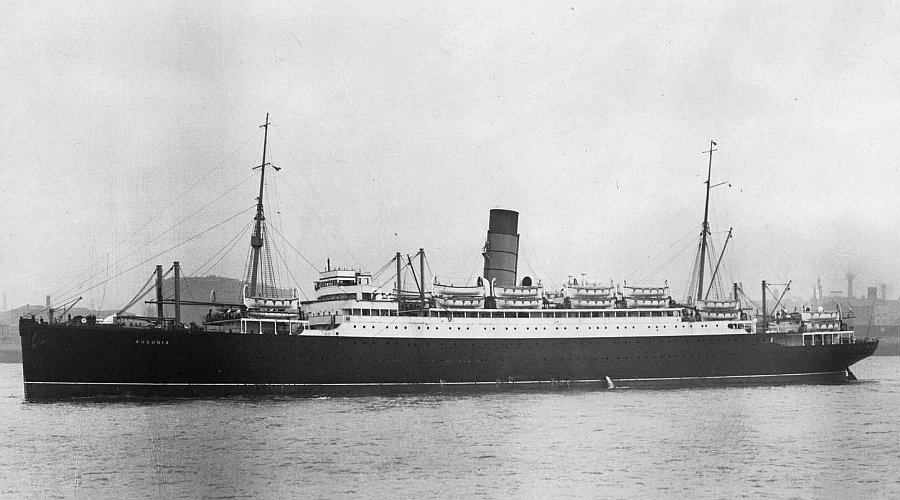
RMS Ausonia sometime in the late 1930’s arriving in New York. (Copyright Dickinson Album).
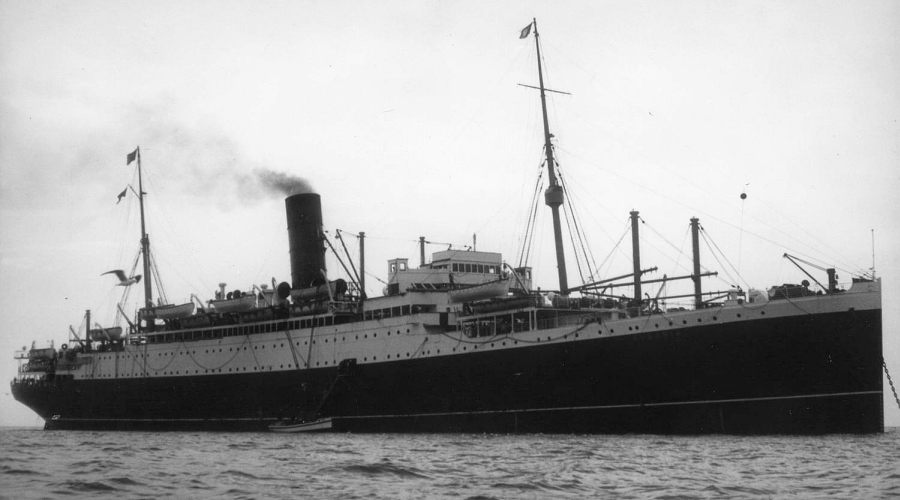
RMS Ausonia sometime in the late 1930’s arriving in New York. (Copyright Dickinson Album).
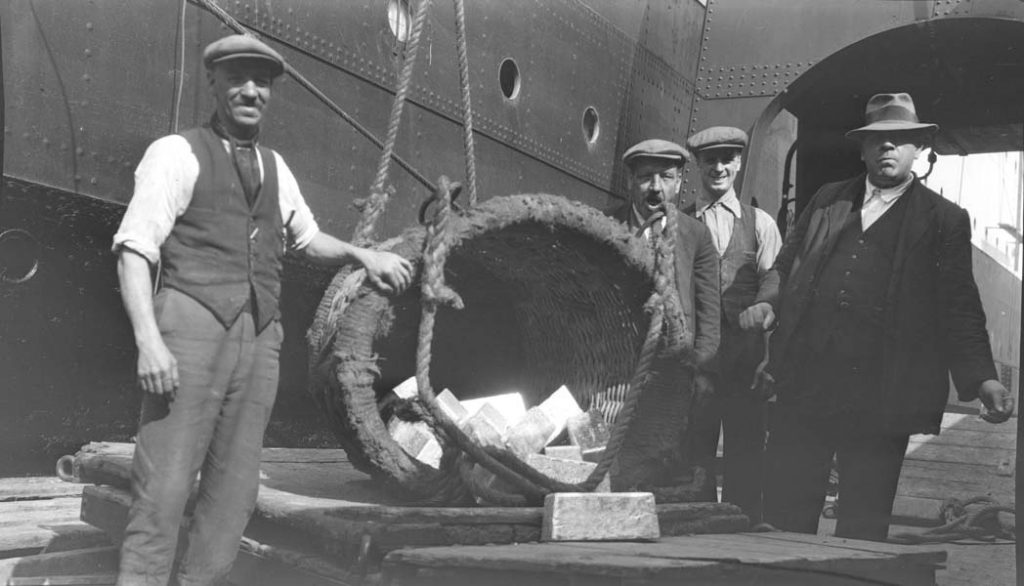
(Copyright Museum of London Docklands)
A Percy Loomis Sperr original photograph of RMS Ausonia taken in 1931 departing from New York. Known as the official photographer for the City of New York from 1924 through to the early 1940’s, he was famous for capturing scenes of the city’s people, buildings and neighbourhoods. Amongst his collection of 30,000 photographs are several photographs of Cunard ‘A’ Class liners as they arrived or departed from the city’s port. The photograph is embossed with his name in the bottom corner.
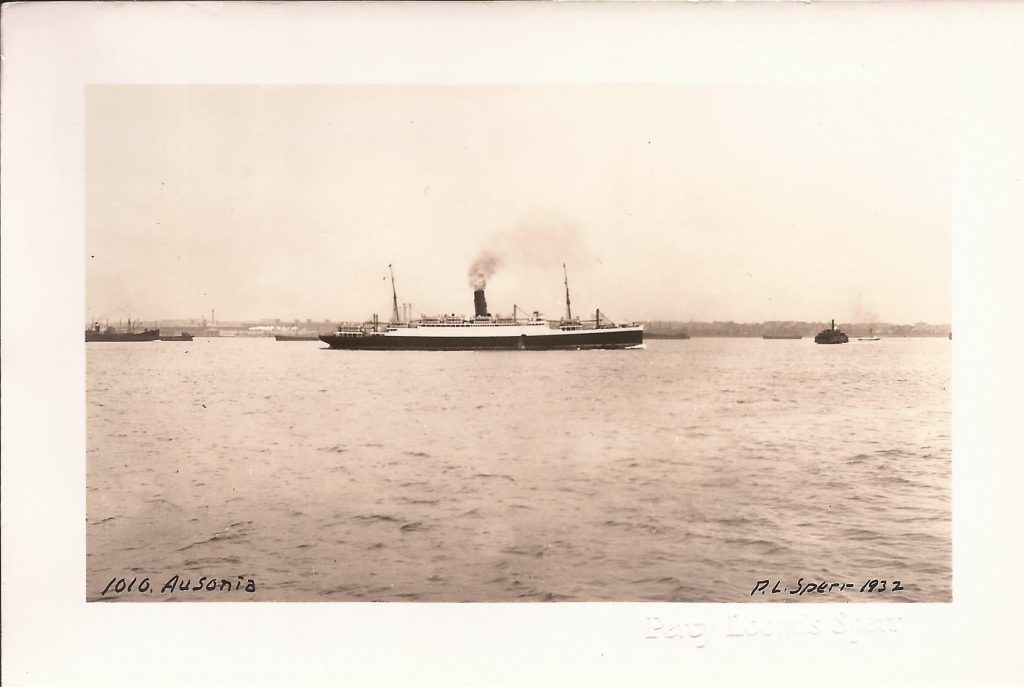
This N.E.A. press photograph dated 5th March 1934, shows members of the crew chopping away ice from Ausonia’s foredeck, on her arrival at New York on the 1st March 1934, after a stormy and frigid Atlantic crossing.
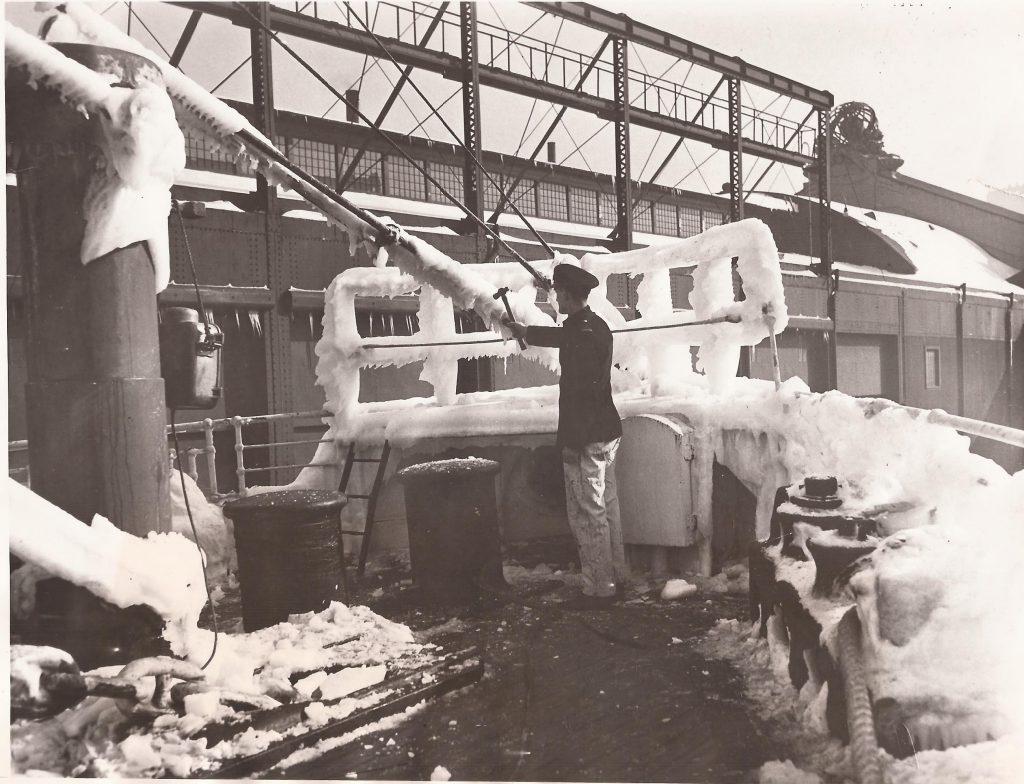
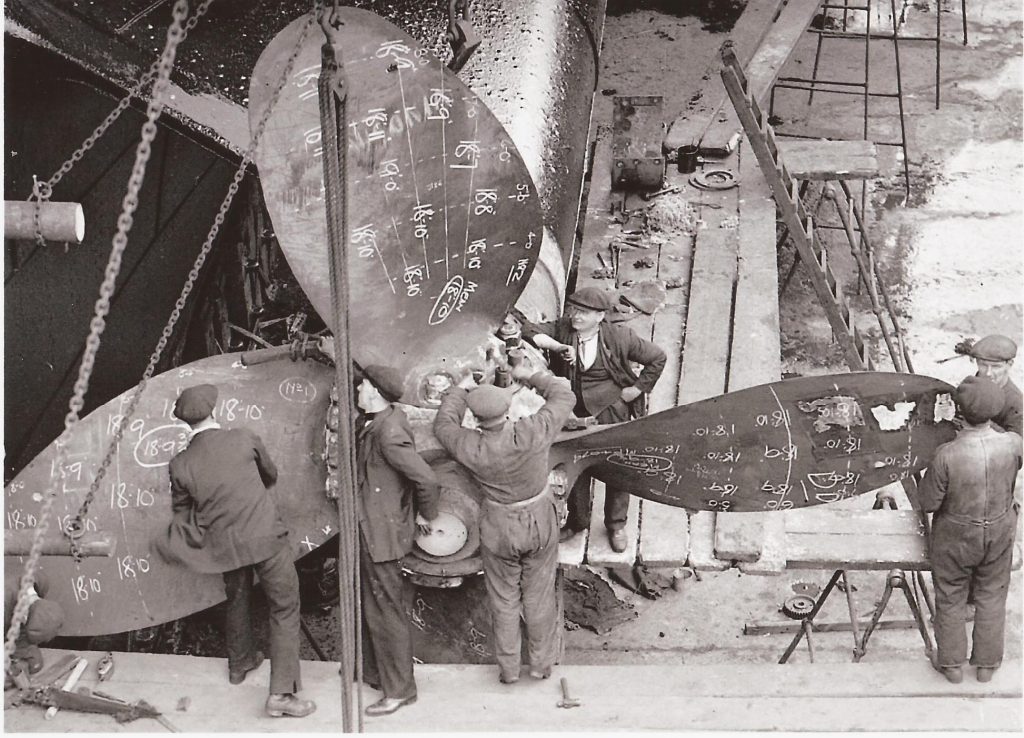
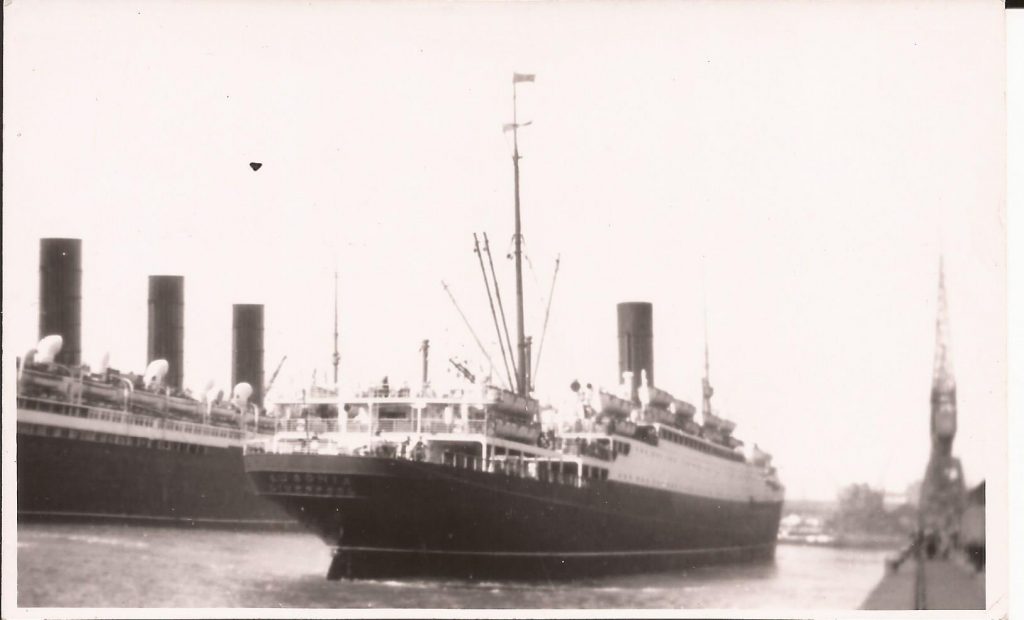
Some of Ausonia’s passengers
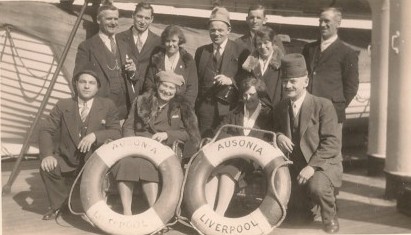
On board the R.M.S. Ausonia: unknown group photograph taken in 1929
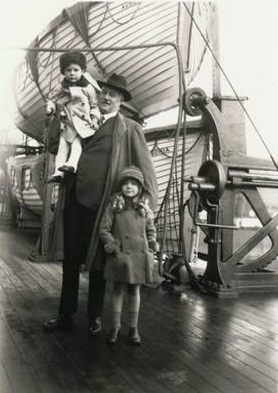
Robert Wilson Reford with his grandchildren Michael and Maryon on board the R.M.S. Ausonia on the way to England 1929.
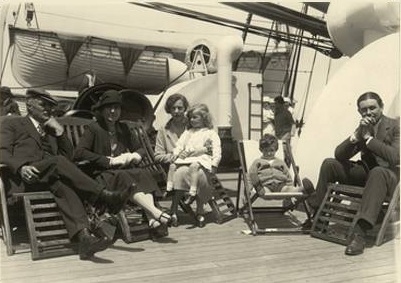
On board the R.M.S. Ausonia: Robert Wilson Reford, Elsie Reford, Evelyn Reford with her children Maryon and Robert, and Eric Reford. (Photo: H. Black, 1929)
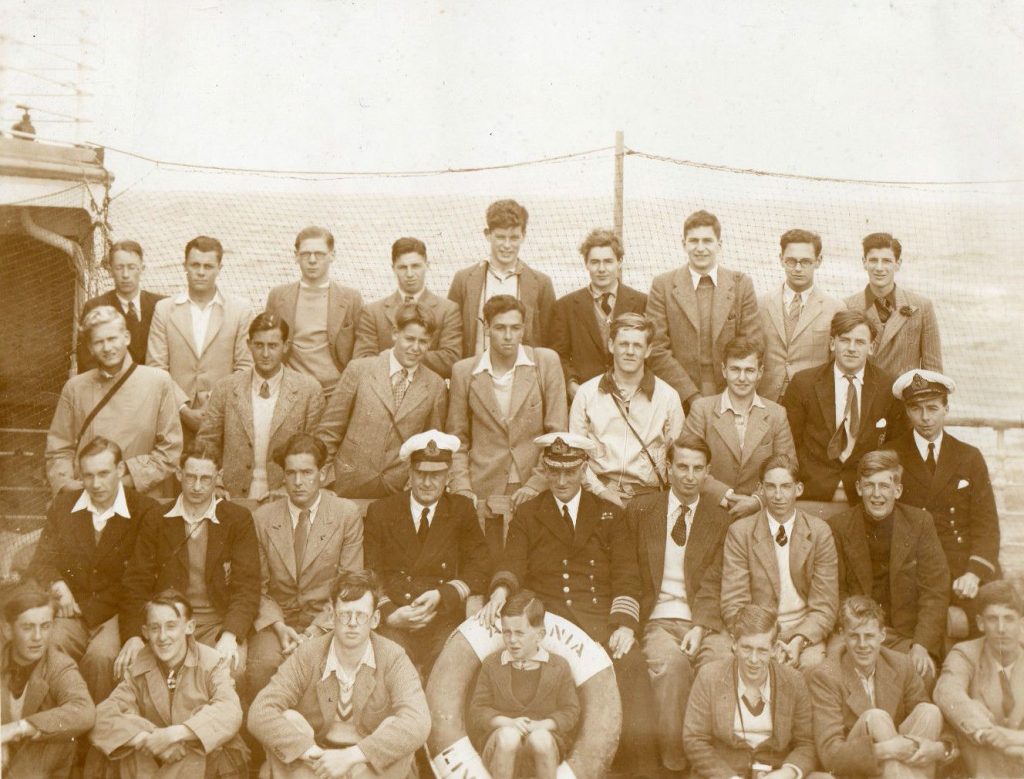
On board the R.M.S. Ausonia: Harvard University group photograph taken in 1938
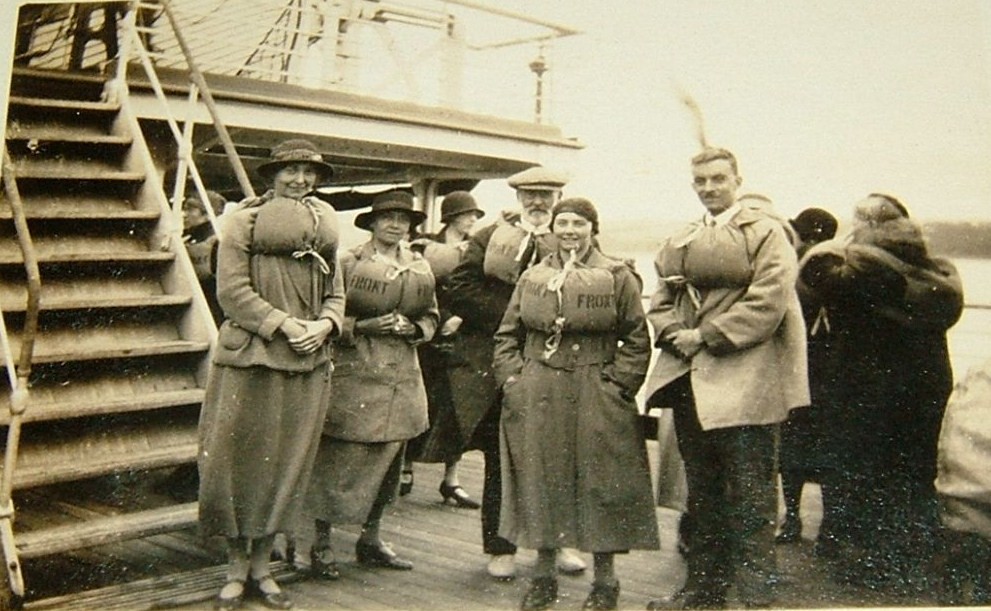
On board the R.M.S. Ausonia: unknown group photograph
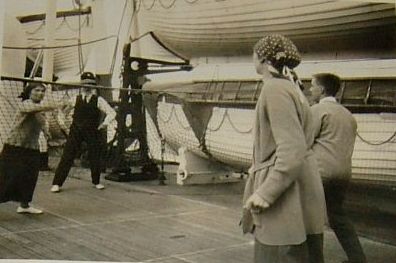
On board the R.M.S. Ausonia: unknown group playing deck tennis
Famous Passengers included;
Arthur H. Landis the American writer was born in Birmingham, Alabama in 1917 and spent most of his youth in Redondo Beach, California. In April 1937, at 19, Landis went to Spain to fight in the Spanish Civil War. He worked as a scout, a typographer, and an artillery spotter with the MacKenzie-Papineau Battalion, and fought in the battles of Aragon and Teruel, where he was injured. Landis also worked for a stint for an intelligence unit, and participated in an aborted operation to blow up the Italian Fleet headquarters. Just before Barcelona fell to Franco, Landis helped load the 15th Brigade Archives onto a Soviet ship. He sailed back to the U.S. on the R.M.S. Ausonia in December 1938.
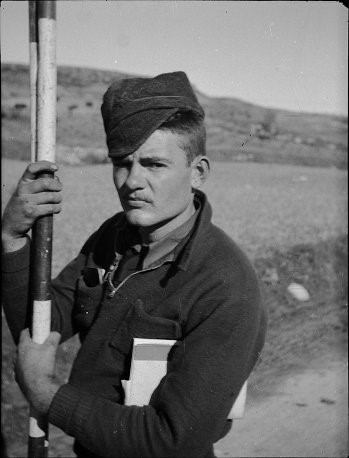
Arthur Landis in Spain during the Spanish Civil War
In May 1939, uncertain about the future of Europe, the classical music composer Benjamin Britten set sail for Canada onboard the RMS Ausonia and a new life. He describes Ausoina as “not too bad” but after sailing in heavy weather “the ship bumps, pitches & rolls which makes moving about & keeping still equally unpleasant & oh does she creak? Sleeping at night is almost impossible”. “We keep to ourselves mostly because there’s nothing here at all attractive to eye, ear, or intellect. A fearfully boring crowd of English bourgeoisie on holiday, the lower decks are crowded with refugees, poor devils” a sign of the times.
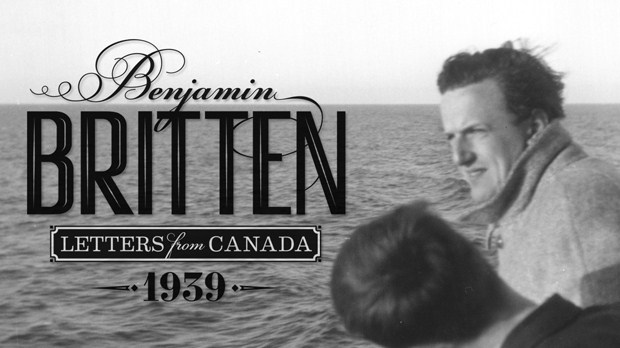
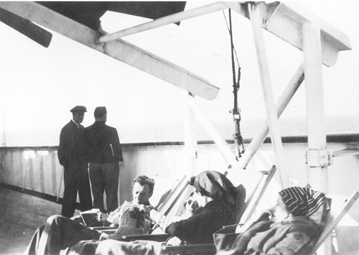
Britten onboard the Ausonia in 1939. (Copyright the Britten-Pears Foundation)
In 1939, RMS Ausonia was requisitioned by the Admiralty at the outbreak of World War II to serve as an armed merchant cruiser. (Refer to HMS Ausonia Repair Ship to continue with her history).
